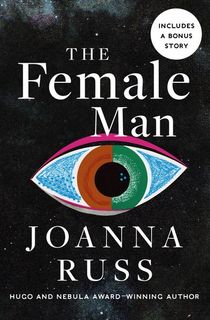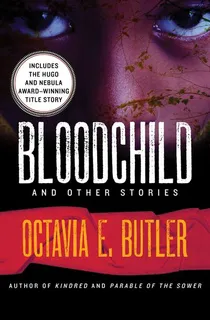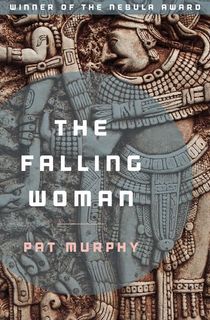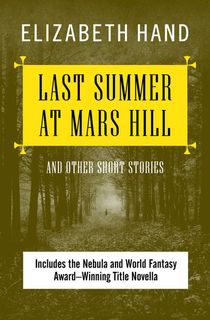First given out in 1966, the Nebula Awards have been presented every year by the Science Fiction and Fantasy Writers of America (SFWA) for more than half a century, honoring the best in science fiction and fantasy writing.
Over the Nebula's history, dozens of women have won awards — and these ten novels are some of the best of the best.
The Best Novel award alone has gone to a woman more than twenty times in the history of the Nebulas, with Ursula K. Le Guin taking home the honor four times, in 1969, 1974, 1990, and 2008.
While Le Guin was the second woman to win a Nebula award when The Left Hand of Darkness took home Best Novel in 1969, Anne McCaffrey beat her by a year to become the first woman to win a Nebula, when her Pern novella Dragonrider won in that category in 1968.
RELATED: The 2019 Nebula Awards Finalists
For those who want to dive into some of the best science fiction and fantasy stories by female authors of the past, present, and future, here are ten Nebula Award-winning books by women that deserve a spot on any sci-fi and fantasy reader's shelf.

The Female Man
Outspoken critic, feminist, and author Joanna Russ was the winner of both the Hugo and Nebula Awards, among many others.
The Female Man, possibly her best-known novel, won a retrospective James Tiptree, Jr. award in 1996.
The story follows four women from different realities, where gender roles are very different, who begin to travel into one-another’s worlds, challenging their own assumptions about gender in this fiercely satiric work. This edition also contains Russ’s Nebula Award-winning short story, “When It Changed.”
RELATED: The Enduring Anger of Joanna Russ

Bloodchild
Originally published in Asimov’s in 1984, Octavia Butler’s novelette “Bloodchild” won both the Hugo and Nebula Awards that year.
Anchoring this collection of some of her best short stories, “Bloodchild” describes a colony of humans on a distant planet who have a symbiotic relationship with the insect-like local lifeforms, an intelligent alien race that use the humans as hosts for their eggs.
Other stories in the book include the Hugo Award-winning “Speech Sounds” and “The Evening and the Morning and the Night,” which was a Nebula finalist in 1987.

The Falling Woman
Elizabeth Butler is an archaeologist with a secret – she can see, and speak to, the shades of those who lived before.
While she’s hunting ghosts in the Yucatan, however, her estranged daughter is on her way to Mexico, hoping for a reunion.
The Falling Woman won the Nebula Award for Best Novel in 1987, making Murphy only the fourth woman to achieve that honor at the time. (Ursula K. Le Guin had already won twice.)
RELATED: Impactful Female Science Fiction and Fantasy Authors You Need to Read

Last Summer at Mars Hill
In 1995, Elizabeth Hand won her first Nebula Award for this collection’s title novella, which “traces a world-changing summer at a New England artists’ colony.” She would later win another in 2006 for her short story “Echo.”
Along with Last Summer at Mars Hill, this volume contains a number of Hand’s most celebrated short stories, including “The Bacchae,” about a savagely matriarchal future, and the chilling fairy tale “The Erl-King.”
RELATED: Underappreciated and Unsettling Horror Books by Women

The Speed of Dark
The mother of an autistic child, Elizabeth Moon’s portrait of life on the autism spectrum, and what it would mean to be “cured,” asks questions that get to the heart of humanity.

Magic for Beginners
Winner of several Nebula and Hugo Awards, author Kelly Link brought together many of her most celebrated short stories in Magic for Beginners, which won the Locus Award for Best Short Story Collection in 2006 and is named for the Nebula Award-winning title novella.
Magic for Beginners also features Link’s Hugo and Nebula Award-winning novelette, “The Faery Handbag.”

Binti
In this Hugo and Nebula Award-winning novella, Binti is the first Himba to be accepted into the prestigious Oomza Uni.
But to get there, Binti will have to brave a dangerous interplanetary journey, where she will encounter the Meduse, a jellyfish-like alien race that are at war with the planet that is her destination.
Trapped aboard a transport ship, the lone survivor of a Meduse attack, Binti must find a way to not only survive but thrive in this strange environment, using her wits and the heritage she has brought with her.

Uprooted
Naomi Novik’s Uprooted is a standalone high fantasy novel rooted (no pun intended) in the Polish folklore with which the author grew up.
The story follows Agnieszka, an awkward young woman who is nonetheless chosen by the resident wizard to work in his tower and become an unlikely apprentice.

The Stone Sky
Despite numerous nominations, including for the prior two installments in her Broken Earth series (both of which also won Hugo Awards!) The Stone Sky marked celebrated novelist N. K. Jemisin’s first time actually taking home a Nebula Award in 2018.
Set on a grim supercontinent wracked by geological and climatological cataclysms, The Stone Sky, like the previous books in Jemisin’s series, follows the struggles of humanity to survive, and the persecution of the minority who can exert control over geological energy, in spite of the fact that they are pretty much the only way that humanity persists at all.
Jemisin's latest release, The City We Became, is already receiving critical acclaim, and our friends at Den of Geek called it one of the top new fantasy books of May 2020.

The Calculating Stars
The first book in the “Lady Astronaut” series, Mary Robinette Kowal’s Nebula and Hugo Award-winning novel is an alternate history that sees much of the Eastern Seaboard of the United States wiped out by a rogue meteorite in the 1950s.
The resulting global climate change accelerates the space race, and the novel follows Elma York, a mathematician and pilot who joins the International Aerospace Coalition. The Calculating Stars is a prequel to Kowal’s Hugo Award-winning short story, “The Lady Astronaut of Mars.”
RELATED: 10 Space-Adventure Books That Will Have You on the Edge of Your Seat
This post is sponsored by Open Road Media. Thank you for supporting our partners, who make it possible for The Portalist to celebrate the sci-fi and fantasy stories you love.






